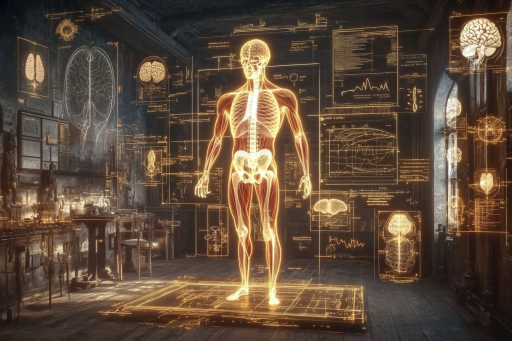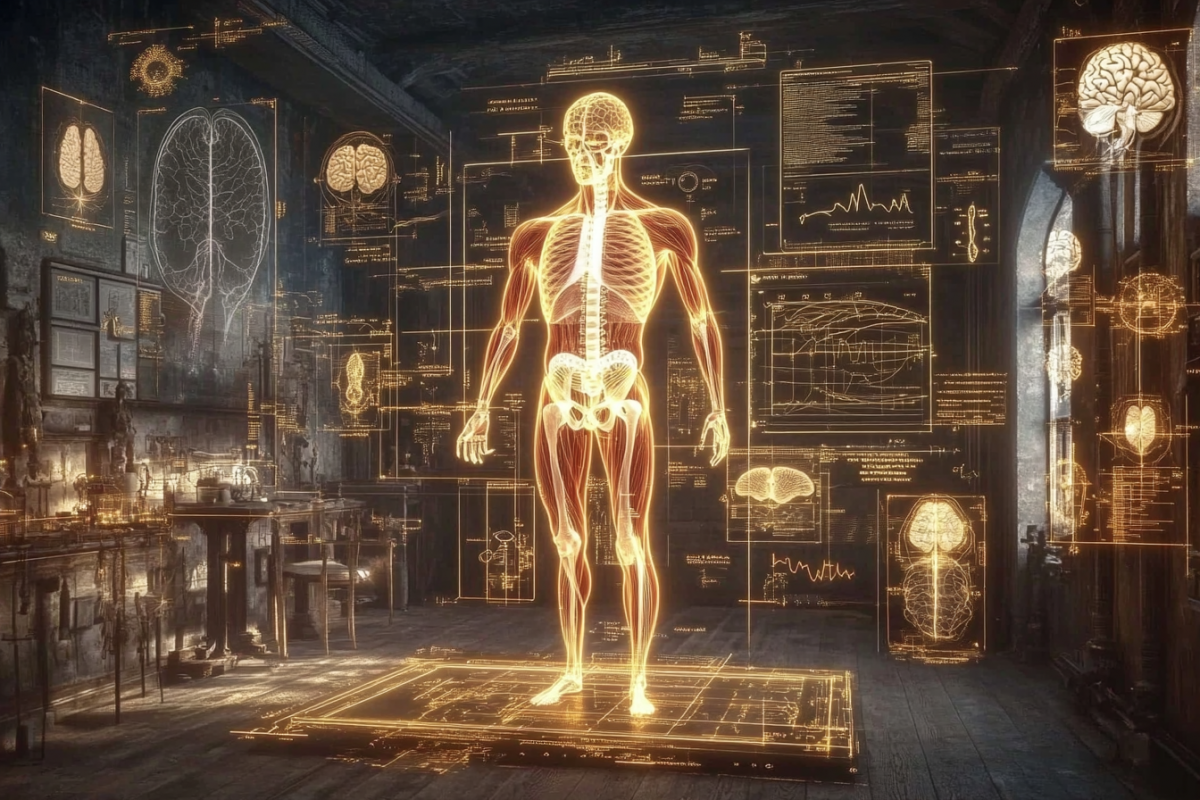
For centuries, people have dismissed certain claims about the human body as myths—until science came along and proved them true. Some of these revelations defy logic, while others confirm suspicions that seemed impossible. From the body’s ability to glow in the dark to unexpected brain powers, these once-doubted ideas are now backed by research. Could there be even more truths hidden in myths we still refuse to believe?
Swallowed Gum Stays in Your Stomach for Years

Many were told as children that swallowed gum stays in the stomach for years—but is that true? While gum doesn’t digest like other foods, it doesn’t stay lodged in the stomach indefinitely. Instead, it passes through the digestive system relatively intact before exiting naturally. Science confirms that while gum isn’t ideal to swallow, it won’t become a permanent part of your body.
Your Body Glows in the Dark—But You Can’t See It

For years, stories of humans emitting a faint glow seemed like pure fantasy. However, scientists using ultrasensitive cameras have confirmed that the human body naturally emits a very faint bioluminescence. This glow is due to chemical reactions within cells, but it’s a thousand times weaker than the human eye can detect. So while you won’t see yourself glowing in the dark, the light is there—just invisible.
The Brain Remains Active After Death

It sounds like something out of a horror movie, but research shows that brain activity continues even after the heart stops beating. Some patients declared clinically dead have reported awareness and even memories of their surroundings before being revived. This discovery raises fascinating questions about consciousness, the afterlife, and the nature of death itself.
Stress Can Literally Turn Your Hair Gray

The idea that stress can turn hair gray overnight has often been dismissed as a myth, but new research suggests it’s possible. Scientists have found that intense stress depletes pigment-producing cells in hair follicles, leading to premature graying. While it might not happen instantly, long-term stress could be altering your hair color at a cellular level.
Your Heart Can Literally Break

The term “broken heart” isn’t just poetic—it’s a real medical condition. Known as Takotsubo cardiomyopathy, extreme emotional distress can temporarily weaken the heart, mimicking the symptoms of a heart attack. While most cases are reversible, this proves that the mind and emotions have a powerful impact on physical health.
Your Stomach Gets a New Lining Every Few Days

Many people assume that the stomach lining stays the same throughout life, but in reality, it completely regenerates every few days. This constant renewal helps protect the stomach from its own powerful acids, which could otherwise digest the organ itself. Without this ongoing process, the stomach would quite literally consume itself.
Humans Have a ‘Second Brain’ in Their Gut

It turns out your gut isn’t just for digestion—it has its own nervous system, sometimes called the “second brain.” This system contains millions of neurons that can function independently from the brain, influencing emotions, mental health, and even decision-making. Ever had a “gut feeling”? Science suggests it might be more than just intuition.
Your Bones Are Constantly Rebuilding Themselves

Bones might feel solid and unchanging, but they are actually in a constant state of renewal. Specialized cells break down old bone tissue and replace it with new growth, meaning the human skeleton is essentially rebuilt over time. This process slows with age, which is why bone strength declines in later years.
The Human Body Can Survive Extreme Conditions

Stories of people surviving freezing temperatures or extreme heat seemed exaggerated—until science confirmed the body’s incredible adaptability. From the ability to function with reduced oxygen in high altitudes to cases of people surviving hours without a heartbeat, the human body is far more resilient than previously believed.
Your Body Contains Traces of Gold

It may sound like fantasy, but trace amounts of gold are present in the human body, particularly in the bloodstream. Though the amount is tiny, this natural element plays a role in cell function and communication. While you won’t be mining gold from your veins, its presence is a fascinating reminder of the body’s complex chemistry.
Human DNA Contains Ancient Viral Remnants

Buried deep within human DNA are genetic traces of ancient viruses that infected our ancestors thousands of years ago. These remnants, known as endogenous retroviruses, make up nearly 8% of the human genome. Scientists now believe some of these viral fragments may even play a role in human evolution and immunity.
People Can Develop Superhuman Strength in Emergencies

Adrenaline-fueled stories of people lifting cars or breaking down doors in life-or-death situations once seemed like myths. However, science has confirmed that in moments of extreme danger, the body releases a surge of energy, momentarily bypassing normal muscle limits. While this strength is temporary, it’s real—and has been documented in life-threatening situations.
Yawning Really is Contagious—Even Across Species

It’s not just a coincidence—yawning is scientifically contagious. Studies show that seeing, hearing, or even thinking about yawning can trigger the reflex. Even more fascinating, yawning spreads across species, meaning your dog might “catch” a yawn from you. Researchers believe it’s linked to social bonding and empathy.
Your Body Can Sense Future Events

Some studies suggest that the body may react to future events before they happen, a phenomenon known as presentiment. Experiments have shown that people sometimes exhibit physiological changes seconds before an unpredictable event occurs, such as a loud noise or flashing light. While this remains controversial, some scientists believe our bodies may pick up on information beyond conscious awareness.
The Human Body Can Detect Earth’s Magnetic Field

For years, scientists believed only birds and certain animals could sense Earth’s magnetic field—but new research suggests humans might have this ability too. Studies have shown that the brain reacts to changes in geomagnetic fields, even if we aren’t consciously aware of it. This hidden sense, known as magnetoreception, could explain why some people have an uncanny sense of direction. Could this mean humans have a natural compass built into their brains?
Are There More Truths Hiding in Myths?

For years, many of these claims were dismissed as impossible, only to be confirmed by science later on. As we continue to explore the depths of human biology, more myths could turn out to be hidden truths waiting to be discovered. What other facts about the body might still be lurking in superstition, waiting for science to catch up?





